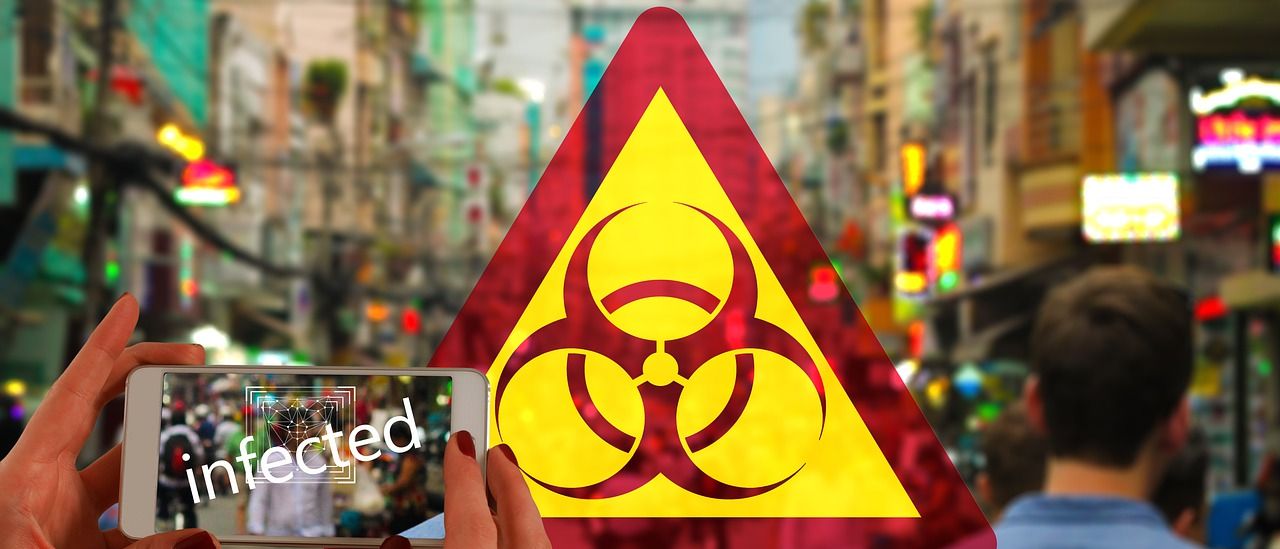Amidst the flurry of COVID-19 activity, we receive new announcements each day at both a Federal and State/Territory level in relation to new requirements aimed at stopping the spread of the virus.
In this article, we look at what the COVID-19 laws are in NSW and the ACT as at 1 April 2020. We also take a look at whether we have enforceable obligations to each other, and what may happen if we breach them.
What are the laws in NSW?
The NSW government is empowered to enact laws relating to COVID-19 under the Public Health Act 2010. At this stage, there are 6 Public Health Orders that have been made under the Public Health Act 2010 that apply to NSW residents. The orders relate to the following areas:
- Lord Howe Island
- Aged care facilities
- Self-isolation upon return from travel
- Maritime quarantine
- Air transportation quarantine
- Restrictions on gathering and movement
The most recent order, the Public Health (COVID-19 Restrictions on Gathering and Movement) Order 2020 commenced 31 March 2020. This piece of legislation is informative in relation to restrictions imposed by the NSW government pertaining to movement, gatherings of more than 2 persons and closure of certain premises in NSW.
The legislation provides helpful clarification in relation to certain measures. We note some below:
Movement
Section 5 of the Order makes it clear that “a person must not, without reasonable excuse, leave the person’s place of residence”. The legislation provides a list of activities in Schedule 1 that constitute “reasonable excuses”. Those include the commonly mentioned activities such as obtaining food for the personal needs of the household, travelling for the purposes of work, exercising and obtaining medical care or supplies. Interestingly, they also include moving to a new place of residence, donating blood, undertaking any legal obligations and accessing public services (such as Centrelink, domestic violence services and mental health services).
Gatherings of more than 2 persons
Pursuant to section 6 of the Order “a person must not participate in a gathering in a public place of morethan 2 persons”. In accordance with section 6(2)(c), this restriction does not apply to “persons all of whom are members of the same household”. The Order defines “household” to mean “any persons living together in the same place of residence”. This helpfully indicates that you do not have to be blood-related to be exempt from the restriction on gatherings of more than 2 persons. It confirms that the focus of this restriction is on confining people within the
bounds of their place of residence.
The Order also provides numerous other exceptions for gatherings of more than 2 persons, including for the purposes of providing care or assistance to a vulnerable person, gatherings at a prison, or gatherings at a supermarket.
For more information on the NSW requirements, please see the NSW Health Covid-19 Page.
What is the law in the ACT?
The main law in the ACT which gives the Government power to make laws about Covid-19 is called the Public Health Act 1997. Under this law, the Government can make other laws about specific measures to deal with Covid-19. So far, it has made 12 laws specifically relating to Covid-19, which have done things such as:
- Declaring a public health emergency
- Requiring self isolation for those infected
- Restricting non-essential business
- Quarantining overseas travellers
- Restricting access to residential aged care facilities
- Limiting the size of indoor and outdoor gatherings
The Public Health Act 1997 creates offences for breaching of these laws, with large fines applying. A person will be guilty of an offence is they breach a provision without a reasonable excuse for the breach. The ACT laws have similar requires to the NSW laws.
For more information on the ACT requirements, please see the ACT Health Covid-19 page.
Are all measures made by law?
The short answer is no.
While a lot of the health advice has been enshrined in legislation, there are a range of measures that most of us are practising on a daily basis that are not included in the ACT and NSW laws. For example, residents of the ACT and NSW are not compelled by law to maintain a distance of 1.5m between each other, nor are they required to wash their hands regularly.
How are the NSW laws being enforced?
The NSW and Victorian governments have led the movement towards enforcement of the newly introduced restrictions. The NSW police commissioner, Mick Fuller, has advised that police will actively enforce the rules. However, he has also noted that the imposition of a fine for a breach of the laws will be at the discretion of the police officer. At this stage, the NSW Police Commissioner has confirmed that “no infringements have been issued anywhere in the state of New South Wales in connection with” the new order relating to social gatherings and movement, and that only one infringement has been issued at all, and it related to a breach of self-isolation.
The ACT has taken a similar, arguably less strict approach, focussing firstly on educating and warning people who breach the restrictions, and turning to fines as a secondary resort.
Do I have obligations to others?
With this unprecedented health crisis comes a changing legal landscape. For many, it has become relevant to ask the question “what are my obligations to others?”
Social obligations
At present, authorities have made it clear that it is important that we all consider our obligations to others from a health perspective, in the interests of complying with our broader social duty to minimise the spread of the virus. We do this by washing our hands, staying home where possible, and keeping a distance of 1.5m between people at all times. As noted under “Are all measures made by law?”, these obligations are not enshrined in law and, while it is important to comply with them, a failure to do so is not an enforceable offence.
Criminal legal obligations
As always, we have an obligation to comply with the laws that govern our community. Failing to do so can constitute a criminal offence, and breaches of those laws are enforced by the police and the courts, by way of fines, terms of imprisonment and other punitive measures. This applies to all of the offences created by the new COVID-19 legislation in NSW and the ACT.
Civil legal obligations
It is also interesting to consider whether this new COVID-19 paradigm also imposes civil legal obligations on the community, the breach of which could provide a basis for a civil claim. With the authorities proactively working to identify the nexus of each virus infection, it will likely be possible to easily determine when and from whom a person contracted the virus, thereby streamlining the identification of a potentially liable individual. While it is too early to determine the direction the law will take, we will be interested to see if the following circumstances could provide a foundation for a claim in negligence:
- Where an individual tests positive for COVID-19 but conducts themselves in a way (for example, continues to access populated areas) that exposes others to the virus;
- Where an individual is aware that they have tested positive for COVID 19 put engage in close contact with another person, causing that person to contract the virus;
- Where an individual becomes unwell and undergoes testing for COVID-19 but returns to work before they receive their test results, during which time a colleague contracts the virus from them;
- An employer failing or refusing to provide protective equipment such as masks and gloves to employees whose work involves unavoidable contact with others, and another person consequently contracts the virus;
- A cleaner failing to perform all required cleaning and sanitisation tasks, causing another person to contract the virus;
- An employer directing an employee to continue to work under conditions that violate public health guidelines (such as not providing easy access to handwashing facilities or overcrowding in offices) and accordingly causing the employee to contract the virus from a co-worker;
- Where an individual who has tested positive for COVID-19 spits on another member of the public, causing them to contract the virus (the act of spitting would also constitute a battery under tort law);
As you can see, we each may have enforceable obligations to one another about our conduct.
We wish everyone good health at this time!
This article is not intended to provide health advice. For further information on the Covid-19 laws, see:
Further reading

elringtons lawyers regularly provide legal advice in relation to a range of Health Law matters. Please contact our Health Law Team for more information or to make an appointment call (02) 6206 1300











